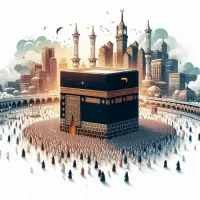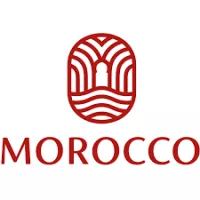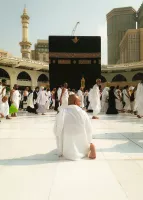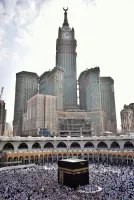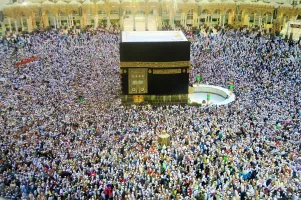Dar al-Makhzen
Duration
1 to 2 Days
1 to 2 Days
Best time to visit
Mar-Jun, Sep-Oct
Mar-Jun, Sep-Oct
Theme
Heritage
Heritage
Dar al-Makhzen Travel Guide
Dar al-Makhzen, located in Morocco, is a destination rich in history, geography, and culture. The country is famous for its vibrant markets, stunning architecture, and warm hospitality.Top Attractions in Dar al-Makhzen
- The Royal Palace
- Hassan Tower
- Kasbah of the Udayas
- Chellah Necropolis
- Moroccan Parliament
Dar al-Makhzen is Famous for
Dar al-Makhzen is most famous for its intricate Moorish architecture and bustling souks.Top Attractions in Dar al-Makhzen
- Exploring the Medina
- Sampling traditional Moroccan cuisine
- Taking a camel ride in the desert
- Visiting the vibrant Jardin Majorelle
- Enjoying a traditional Moroccan hammam spa experience
What's Great about Travelling to Dar al-Makhzen?
- Rich cultural experiences
- Beautiful architecture
- Warm and welcoming locals
What's Not So Great about Travelling Dar al-Makhzen?
- High tourist crowds in popular areas
- Language barrier for non-French or Arabic speakers
- Hot weather during summer months
Travel Tips for Dar al-Makhzen
- Obtain a local SIM card for easy communication
- Dress modestly, especially when visiting religious sites
- Negotiate prices in the markets
Important Dar al-Makhzen trip information
- Ideal Duration: 5-7 days
- Best Time to Visit: Spring or Fall for milder weather
- Nearby Airports and Railway Stations: Rabat-Salé Airport, Rabat Ville Train Station
Per Person
54,999
*EXCLUDING APPLICABLE TAXES 5.0 Ratings
( 44 Reviews )
( 44 Reviews )
Per Person
1,60,000
*EXCLUDING APPLICABLE TAXES 5.0 Ratings
( 57 Reviews )
( 57 Reviews )
Per Person
24,999
*EXCLUDING APPLICABLE TAXES 5.0 Ratings
( 44 Reviews )
( 44 Reviews )
Per Person
94,000
*EXCLUDING APPLICABLE TAXES 5.0 Ratings
( 44 Reviews )
( 44 Reviews )
Per Person
70,000
*EXCLUDING APPLICABLE TAXES 5.0 Ratings
( 44 Reviews )
( 44 Reviews )
FAQ's on Dar al-Makhzen
Q1: What is the best time to visit Dar al-Makhzen?
The best time to visit Dar al-Makhzen is during the spring and autumn months, from March to May and September to November, when the weather is pleasant and ideal for exploring the country. Avoid the hot summer months of June to August when temperatures can soar. Consider visiting during special events like the Cherry Festival in April or the Fes Festival of World Sacred Music in June for a unique experience.
Q2: Do I need a visa to travel to Dar al-Makhzen?
Travelers to Dar al-Makhzen typically need a visa to enter the country. Check with the nearest embassy or consulate for specific visa requirements based on your nationality. Some nationalities may be eligible for visa-on-arrival or visa-free entry for short stays. Ensure your passport has a validity of at least six months beyond your planned stay to avoid any issues.
Q3: What are the must-visit attractions in Dar al-Makhzen?
Dar al-Makhzen offers a plethora of must-visit attractions, including the historic Chellah Ruins, the vibrant markets of Rabat's Medina, the stunning Hassan Tower and Mausoleum of Mohammed V, and the picturesque Kasbah of the Udayas. Don't miss exploring the ancient city of Volubilis, a UNESCO World Heritage Site, and the Andalusian Gardens for a peaceful retreat. The coastline of Dar al-Makhzen also offers beautiful beaches like Skhirat and Temara for relaxation.
Q4: Is Dar al-Makhzen a safe place to travel?
Dar al-Makhzen is considered a relatively safe travel destination. However, like any other place, it is advisable to take standard precautions to ensure your safety. Avoid walking alone at night in unfamiliar areas and keep an eye on your belongings in crowded places. Stay informed about local news and follow any travel advisories that may be in place. Overall, with proper awareness and precautions, you can enjoy a safe and memorable trip to Dar al-Makhzen.
Q5: What is the local currency in Dar al-Makhzen and can I use credit cards?
The local currency in Dar al-Makhzen is the Moroccan Dirham (MAD). ATMs are widely available in major cities and tourist areas where you can withdraw cash. Credit cards are accepted in larger establishments like hotels, restaurants, and shops, but it's advisable to carry some cash for smaller vendors and markets. Notify your bank before traveling to avoid any issues with card transactions abroad. Money exchange services are also available at airports and banks for currency conversion.
Q6: What is the local cuisine like in Dar al-Makhzen?
Dar al-Makhzen boasts a rich culinary tradition with influences from Arab, Berber, and French cuisines. Enjoy traditional dishes like tagine, couscous, pastilla, and harira soup, often flavored with a mix of spices like cumin, saffron, and cinnamon. Don't miss trying Moroccan mint tea and local pastries like chebakia and gazelle horns for a sweet treat. Vegetarians can savor dishes like vegetable tagine and zaalouk. Be mindful of local customs like using your right hand for eating and accepting food or drinks with both hands as a sign of respect.
Q7: What transportation options are available in Dar al-Makhzen?
Transportation options in Dar al-Makhzen include a network of buses, trains, and shared taxis for getting around the country. In major cities like Rabat and Casablanca, you can use public buses or trams for local travel, while intercity trains are convenient for longer distances. Taxis are also widely available, but it's advisable to negotiate fares before starting your journey. Renting a car is another option for exploring remote areas and scenic routes, but be prepared for varying road conditions. For a unique experience, consider taking a camel ride in the desert or hiring a local guide for a more immersive journey.
Q8: Are there any cultural norms or etiquette I should be aware of when visiting Dar al-Makhzen?
When visiting Dar al-Makhzen, it's important to respect local customs and etiquette. Dress modestly, especially when visiting religious sites or rural areas, by covering your shoulders and knees. Greetings are an important part of Moroccan culture, so be prepared to exchange pleasantries with locals. When shopping in markets, bargaining is common, so feel free to negotiate prices with vendors. Avoid public displays of affection, especially in conservative areas, and ask for permission before taking photos of people. Respect Ramadan traditions by refraining from eating, drinking, or smoking in public during daylight hours. By being mindful of cultural norms and showing respect for local traditions, you can have a more enriching and rewarding experience in Dar al-Makhzen.
Q9: I am a travel agent. How can I buy travel leads of Dar al-Makhzen?
Register yourself as a travel agent at agents.tripclap.com and then you can buy travel leads to Dar al-Makhzen once your account is approved. For more details contact our support team at +91-8069186564 or support@tripclap.com
